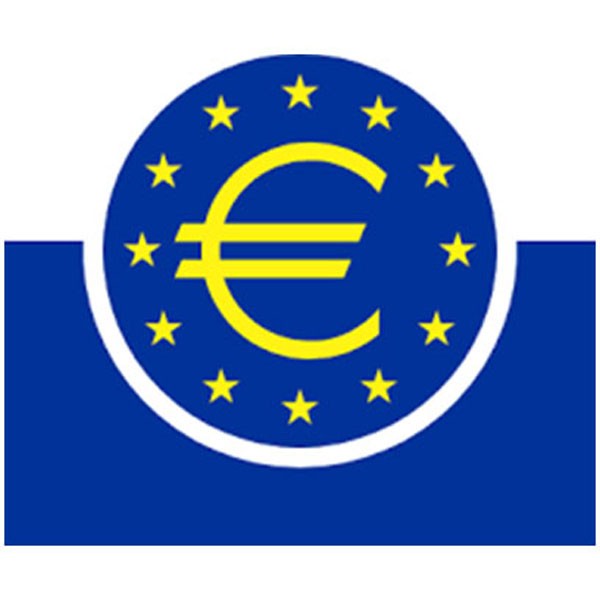The European Central Bank (French: Banque Centrale Européenne; German: Europäische Zentralbank; English: European Central Bank), Referred To As The European Central Bank, Is The Central Bank Of The European Union And Is Responsible For The Financial And Monetary Policy Of The Euro Area. It Is Headquartered In Frankfurt, Germany And Was Established On June 1, 1998.
Organization And Structure
Located In Frankfurt, Germany, The Eurotower Used To Be The Headquarters Of The European Central Bank
The European Central Bank Is Governed By Its Board Of Directors, With A Chairperson Of The Board And A Council, Including Members Of The Board And Representatives Of The Respective Central Banks Of Each European Country.
The Organization Of The European Central Bank Is Mainly Modeled After The German Central Bank And The West German Local Clearing Bank.
Successive Presidents
Main Article: President Of The European Central Bank
The First President Of The European Central Bank Was Wim Deisenberg, Who Served As The President Of The Dutch Central Bank And Taught Macroeconomics At The University Of Amsterdam. His Successor Was The Frenchman Jean-Claude Trichet, Who Served As The President Of The Banque De France, The French Central Bank, And Took Over In November 2003. The Third President Of The European Central Bank Was Mario Draghi Of Italy, Who Served As The President Of The Bank Of Italy And Took Over In November 2011. The Current President Of The European Central Bank Is Christine Lagarde Of France. She Took Over In November 2019 And Served As The President Of The International Monetary Fund.
Executive Board
The Executive Board Consists Of Six Members And Formulates Policy Strategies For The European Central Bank. Four Of These Positions Are Held By The Four Largest Central Banks Of The European Union, France, Germany, Italy And Spain.
European System Of Central Banks
The European System Of Central Banks (ESCB) Consists Of The European Central Bank And The Respective Central Banks Of The 27 Member States Of The European Union. Only The Central Bank Directors Of Each Member State Responsible For European Union Affairs Can Participate In And Make Decisions.
Policy Interest Rate
The Key Policy Interest Rates Of The European Central Bank Include The Main Refinancing Rate, The Deposit Mechanism Rate And The Marginal Lending Rate.
Criticism
The European Central Bank Mainly Faces Two Kinds Of Criticism, Namely Lack Of Autonomy And Uneven Goals.
Autonomy
Night Scene Of The Euro Symbol
Some Critics Believe That The European Central Bank Lacks Autonomy. The European Central Bank Was Jointly Prepared By The Central Banks Of The Member States To Avoid Political Influence. Although Its Purpose And Power Are Derived From Politics, Its Decision-making Power Is Controlled By The European Central Bank Itself And Is Not Influenced By Countries. Central Banks Of European Union Countries Outside The Eurozone, Such As The Danish Central Bank, Are Also Bound By These Provisions. Some Critics Argue That The ECB Is Not Very Democratic, Its Decision-making Process Operates In A Black Box, And Lacks Due Supervision, So Its Final Policy Has The Potential To Violate Human Rights And Damage The Natural Environment. The ECB Does Not Publish Its Decisions, Nor Does It Accept Opinions. When Decisions Are Implemented, Its Homepage Does Not Collect Public Opinions. Because Of The Protection Of The Rights And Interests Of The Members Of The Council, The Records Of Its Internal Ministries Are Not Disclosed. European Union Citizens Can Indirectly Influence The Decisions Of The European Central Bank By Electing Members Of The European Parliament, But If The Economic Environment Does Not Permit, Politicians May Not Be Able To Change The Decisions Of The European Central Bank. However, The European Central Bank Is Responsible To The European Parliament, And The Appointment Of Key Officials Needs To Be Approved By It. The Law Also Requires The President Of The European Central Bank To Submit An Annual Report To The European Parliament Every Year. In Addition, The Members Of The European Central Bank's Board Of Directors Are Also Required To Meet With The European Parliament Four Times A Year To Explain The Central Bank's Own Situation. If Necessary, It Can Be Held More Frequently. Many Economists Agree That The Autonomy Of The European Central Bank Is Extremely Important Because It Prevents The Market From Being Manipulated For Political Purposes.
Inflation Target
Some Critics Believe That The Target Set By The European Central Bank Is Unreasonable. The European Central Bank Uses The Interest Rate Mechanism To Control The Inflation Rate, But Does Not Set The Control Policy For The Unemployment Rate And The Currency Exchange Rate. This Makes Some People Feel That Such An Economic Policy Is Unbalanced And May Lead To Various Economic And Livelihood Problems. Many British Economists Have Pointed Out That The European Central Bank Needs To Implement A Balanced Target Combination, Just As The Bank Of England Is Now Adopting. The Unusually Low Interest Rate Environment Set By The European Central Bank Has Also Been Criticized By Many Critics As Not In Line With The Situation Of The European Union Member States. This Low Interest Rate Environment Is The Cause Of The Irish Economic Bubble. While This Can Prevent Economic Downturns In Major European Union Member States Such As France, Germany And Italy, It Does Not Take Into Account The Interests Of Other Member States. It Should Be Noted That Japan And The United States Have Also Adopted Low Interest Rate Policies In Recent Years.





